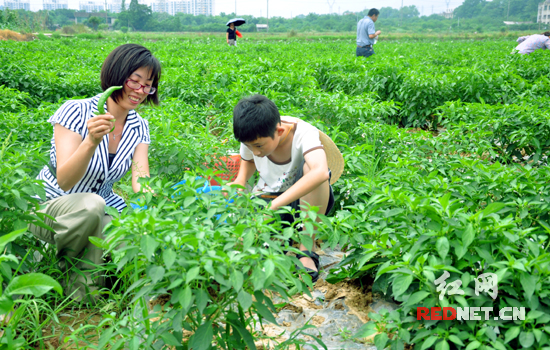Urbanites take to farming to ensure food safety
 0 Comment(s)
0 Comment(s) Print
Print E-mail
Xinhua, July 3, 2011
E-mail
Xinhua, July 3, 2011
It has been a weekly routine for Yao Weihua, a housewife in Zhengzhou, the capital city of central Henan Province, to get vegetables for her family from a small garden she rents in the city's suburb.
The garden has lettuce and other fresh vegetables that are grown without the use of chemical fertilizers or pesticides, Yao said.
Her weekly trip to the garden spares her from shopping at local vegetable markets, where Yao fears produce could be tainted with harmful chemicals, as the media has frequently reported on.
The excessive use of agricultural chemicals became a grave concern of Yao years ago, when she had intense cravings for cucumbers during her pregnancy, but found that the cucumbers she bought would swell up to unnatural sizes after being stored for just a few days.
This prompted Yao to seriously consider growing food by herself, an idea resonated with a group of 20 parents, who in 2010 founded the Safeguard Homeland Green Consumers Association.
"It's an association of mothers who joined to find safer food for their children," said Yao, who noted that the membership has grown to 80 this spring.
The association made a deal with an eco-farm that uses earthworms to help fertilize the crops. The farm leased out small pieces of land, usually 20 square meters as a share, to every member of the association at the monthly rent of 100 yuan (about 15 U.S. dollars).
| File photo: Urbanites take to farming to ensure food safety |
Members could either plant vegetables themselves or hire farmers to do the work for 280 yuan for each month.
"Now I can finally put my mind at ease, as the vegetables are grown right before my eyes on ecologically fertilized land," said Zhang Lushuang, one of the association's members.
Mutual benefits
Like the members of "Safeguard Homeland," urban consumers, eager to secure a safer diet, are rushing to manage the production of their own food, by directly engaging in the farm work or commissioning production to eco-farms.
It helps consumers bypass the sophisticated food chain, a chief supplier of chemicals in Chinese food, Yao said.
The surge in the number of customers has also encouraged rural eco-farmers, as it suggested a boost in the sluggish market of organic products, said Zhang Yanbin, secretary of the Communist Party of China branch of Nanmazhuang village, which has spearheaded the eco-farming in Henan Province.
"When we first promoted the production of organic foods, we deeply believed that money would keep flowing in," said Zhang.






